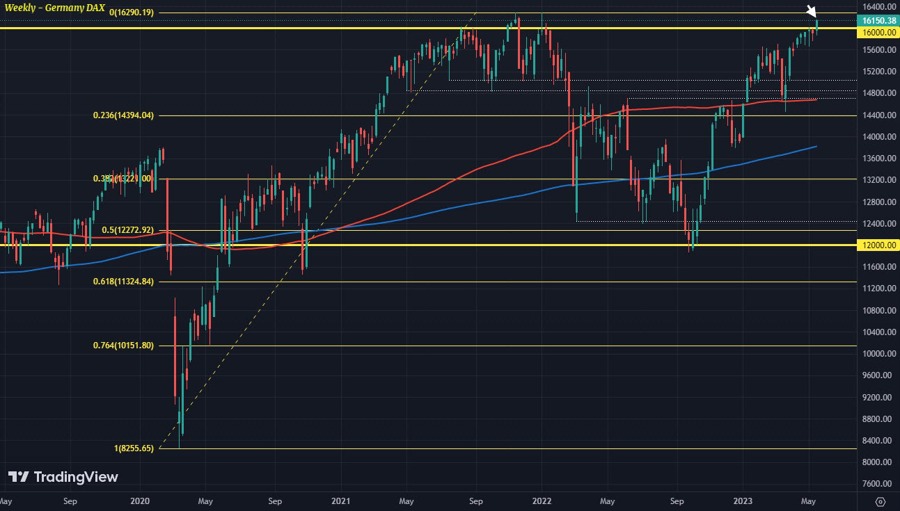Understanding The Value Of Middle Managers In Today's Business Environment

Table of Contents
The Bridge Between Leadership and Employees
Middle managers serve as the crucial link between senior leadership and frontline employees. Their role is multifaceted, encompassing communication, mentoring, and fostering a positive work culture.
Facilitating Communication and Information Flow
Middle managers act as a vital conduit for information, translating high-level strategic directives from leadership into actionable plans for their teams. They ensure that everyone understands the "why" behind decisions, boosting employee engagement and buy-in. Simultaneously, they effectively relay employee feedback, concerns, and innovative ideas upwards, preventing critical information from being lost in the organizational hierarchy.
- Clear Communication: Middle managers utilize various communication channels (meetings, emails, one-on-ones) to ensure transparency and prevent miscommunication.
- Actionable Plans: They break down complex strategies into manageable tasks, providing clear direction and expectations for their teams.
- Feedback Mechanisms: They establish systems for regular feedback, ensuring that employee voices are heard and concerns are addressed promptly.
- Conflict Resolution: They act as mediators, resolving conflicts and disagreements within their teams to maintain a productive work environment.
Mentoring and Developing Future Leaders
Beyond communication, middle managers play a pivotal role in talent development. They identify high-potential employees, provide mentorship and coaching, and guide their professional growth. This investment in human capital contributes significantly to employee retention and the creation of a strong leadership pipeline.
- Performance Management: They conduct regular performance reviews, providing constructive feedback and identifying areas for improvement.
- Training and Development: They arrange training opportunities and provide ongoing support to enhance employee skills and knowledge.
- Succession Planning: They identify and nurture future leaders within their teams, ensuring a smooth transition and continuity.
- Mentorship Programs: They actively participate in and oversee mentorship programs, fostering a culture of learning and growth.
Driving Operational Efficiency and Productivity
Effective middle management is paramount to operational efficiency and increased productivity. Their responsibilities include strategic implementation, resource allocation, and optimizing workflows.
Strategic Implementation and Goal Setting
Middle managers translate the overarching strategic goals set by senior leadership into specific, measurable objectives for their teams. They develop detailed action plans, monitor progress, and make necessary adjustments to ensure that projects stay on track and deadlines are met.
- SMART Goals: They ensure that team goals are Specific, Measurable, Achievable, Relevant, and Time-bound.
- Project Management: They utilize project management methodologies (Agile, Waterfall, etc.) to optimize workflows and track progress effectively.
- Performance Monitoring: They regularly monitor team performance against established goals, identifying potential roadblocks early on.
- Process Improvement: They continuously seek opportunities to improve processes and increase efficiency.
Resource Allocation and Optimization
Middle managers play a critical role in resource allocation, ensuring that teams have the necessary resources (budget, personnel, equipment, etc.) to achieve their objectives. They optimize resource utilization, minimizing waste and maximizing output.
- Budget Management: They manage team budgets effectively, allocating resources strategically to maximize impact.
- Staffing and Delegation: They effectively delegate tasks, matching employee skills and expertise to project requirements.
- Equipment and Technology: They ensure that teams have access to the necessary tools and technology to perform their work efficiently.
- Risk Management: They identify and mitigate potential risks that could impact project success.
Fostering Employee Engagement and Motivation
Middle managers are at the forefront of creating a positive and engaging work environment. Their leadership style significantly impacts employee morale, productivity, and retention.
Creating a Positive Work Environment
Middle managers cultivate a supportive and inclusive team culture where employees feel valued, respected, and motivated. They actively foster a sense of community and belonging.
- Recognition and Rewards: They recognize and reward employee achievements, boosting morale and motivation.
- Open Communication: They maintain open communication channels, encouraging feedback and addressing employee concerns promptly.
- Work-Life Balance: They support a healthy work-life balance for their team members, promoting well-being and reducing burnout.
- Conflict Resolution: They proactively address conflicts and disagreements, ensuring a harmonious work environment.
Promoting Collaboration and Teamwork
Effective middle managers foster a collaborative and team-oriented work environment. They encourage open communication, shared goals, and mutual support among team members.
- Team Building Activities: They organize team-building activities to strengthen relationships and improve collaboration.
- Cross-Functional Collaboration: They facilitate collaboration between different teams to ensure seamless project execution.
- Mentoring and Peer Support: They encourage mentoring and peer support within the team, fostering a culture of learning and growth.
- Shared Vision: They ensure that all team members understand and are aligned with the team's objectives.
Conclusion
In conclusion, the value of middle managers in today's business environment is undeniable. Effective middle management is crucial for bridging the gap between leadership and employees, driving operational efficiency, and fostering a positive and productive work environment. By investing in and developing strong middle management teams, businesses can unlock significant improvements in overall performance and achieve their strategic objectives. Don't underestimate the power of effective middle management—invest in your middle managers and watch your business flourish. Building a strong team of middle managers is a key investment in your organization's future success.

Featured Posts
-
 The Ultimate Guide To An Escape To The Country
May 25, 2025
The Ultimate Guide To An Escape To The Country
May 25, 2025 -
 Slight Dip For Cac 40 At Weeks End March 7 2025 Update
May 25, 2025
Slight Dip For Cac 40 At Weeks End March 7 2025 Update
May 25, 2025 -
 Frankfurt Equities Opening Dax Continues Record Breaking Ascent
May 25, 2025
Frankfurt Equities Opening Dax Continues Record Breaking Ascent
May 25, 2025 -
 Dazi Usa Previsioni Sui Prezzi Del Tessile E Dell Abbigliamento
May 25, 2025
Dazi Usa Previsioni Sui Prezzi Del Tessile E Dell Abbigliamento
May 25, 2025 -
 Thierry Ardisson Et Laurent Baffie Dispute Cons Et Machos
May 25, 2025
Thierry Ardisson Et Laurent Baffie Dispute Cons Et Machos
May 25, 2025
Latest Posts
-
 Film Location Glasgow A Cinematic Shift From La To Scotland
May 25, 2025
Film Location Glasgow A Cinematic Shift From La To Scotland
May 25, 2025 -
 10 Great British Pop Films A Definitive List
May 25, 2025
10 Great British Pop Films A Definitive List
May 25, 2025 -
 Glasgows Gritty Transformation How A Thriller Mimics La
May 25, 2025
Glasgows Gritty Transformation How A Thriller Mimics La
May 25, 2025 -
 Filming In Glasgow How Martin Compston Recreated Los Angeles
May 25, 2025
Filming In Glasgow How Martin Compston Recreated Los Angeles
May 25, 2025 -
 What To Watch Today The Skinny Jab Revolution Black 47 Roosters And More Top Streaming Choices
May 25, 2025
What To Watch Today The Skinny Jab Revolution Black 47 Roosters And More Top Streaming Choices
May 25, 2025
